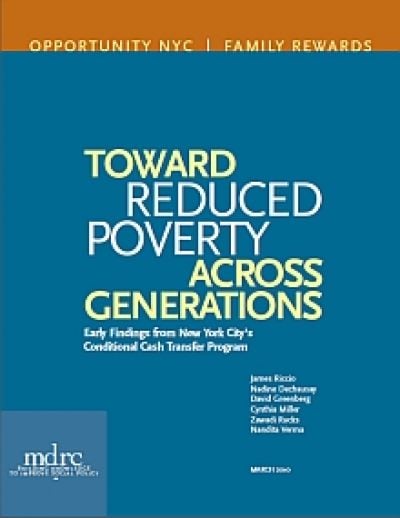Eligibility
As a two-generation intervention, eligible families had to be legal residents of the United States and have a 4th, 7th or 9th grade school-aged child.

In 2007, with the help of Mayor Michael Bloomberg, a conditional cash transfer program (CCT) started in New York City as an experimental, privately funded, ghetto-busting initiative. The CCT program, adapted from Mexico, offered money for immediate poverty relief, but conditions the assistance on families improving their education and workforce skills, thus reducing intergenerational poverty over time. New York City’s Family Rewards was the first comprehensive CCT program implemented in a developed country. This comprehensive report offers a preliminary assessment of the program’s operations and effectiveness, and includes research methodology, extensive investigation, initial findings, executive summary, team conclusions and evaluation data gathered during the program’s first 2 years of operation.
Family Rewards believes financial incentives can influence individuals’ short-term choices to improve financial and social stability over the long term.
We hope you'll find value in this report. We’d love to get a little information from you, which we'll use to notify you about relevant new resources.